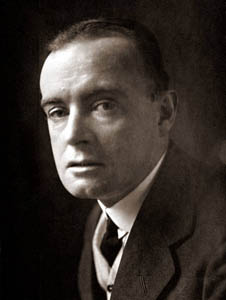Joel Salomon, in a comment at According to Hoyt, observes:
Of course it is possible to tell a compelling story about a heroine without flaws….
Here is how the thing was done, by the inimitable H. H. Munro, better known as Saki.
The Storyteller
by Saki
It was a hot afternoon, and the railway carriage was correspondingly sultry, and the next stop was at Templecombe, nearly an hour ahead. The occupants of the carriage were a small girl, and a smaller girl, and a small boy. An aunt belonging to the children occupied one corner seat, and the further corner seat on the opposite side was occupied by a bachelor who was a stranger to their party, but the small girls and the small boy emphatically occupied the compartment. Both the aunt and the children were conversational in a limited, persistent way, reminding one of the attentions of a housefly that refuses to be discouraged. Most of the aunt’s remarks seemed to begin with ‘Don’t,’ and nearly all of the children’s remarks began with ‘Why?’ The bachelor said nothing out loud. ‘Don’t, Cyril, don’t,’ exclaimed the aunt, as the small boy began smacking the cushions of the seat, producing a cloud of dust at each blow.
‘Come and look out of the window,’ she added.
The child moved reluctantly to the window. ‘Why are those sheep being driven out of that field?’ he asked.
‘I expect they are being driven to another field where there is more grass,’ said the aunt weakly.
‘But there is lots of grass in that field,’ protested the boy; ‘there’s nothing else but grass there. Aunt, there’s lots of grass in that field.’
‘Perhaps the grass in the other field is better,’ suggested the aunt fatuously.
‘Why is it better?’ came the swift, inevitable question.
‘Oh, look at those cows!’ exclaimed the aunt. Nearly every field along the line had contained cows or bullocks, but she spoke as though she were drawing attention to a rarity.
‘Why is the grass in the other field better?’ persisted Cyril.
The frown on the bachelor’s face was deepening to a scowl. He was a hard, unsympathetic man, the aunt decided in her mind. She was utterly unable to come to any satisfactory decision about the grass in the other field.
The smaller girl created a diversion by beginning to recite ‘On the Road to Mandalay.’ She only knew the first line, but she put her limited knowledge to the fullest possible use. She repeated the line over and over again in a dreamy but resolute and very audible voice; it seemed to the bachelor as though some one had had a bet with her that she could not repeat the line aloud two thousand times without stopping. Whoever it was who had made the wager was likely to lose his bet.
‘Come over here and listen to a story,’ said the aunt, when the bachelor had looked twice at her and once at the communication cord. [Read more…]








Recent Comments